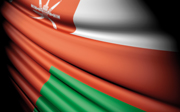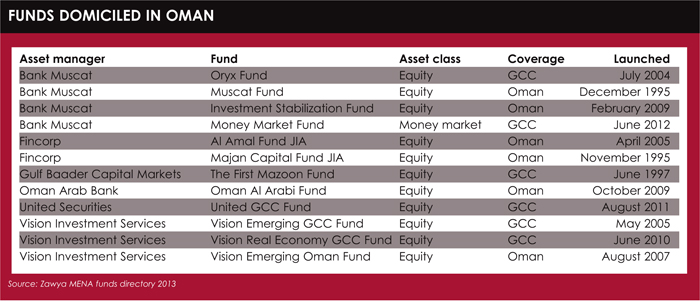 Oman is trying to improve conditions for local people by imposing minimum wages and workforce quotas, while dealing with dwindling energy resources. George Mitton reports
Oman is trying to improve conditions for local people by imposing minimum wages and workforce quotas, while dealing with dwindling energy resources. George Mitton reports
The past two years may not have been the most difficult in the 48-year rule of Sultan Qaboos of Oman – there was a communist insurgency in the Dhofar province in the 1970s, after all – but they were hardly carefree.
During the Arab revolutions of 2011, rulers throughout the Gulf faced a challenge to their legitimacy, Qaboos included. He may have felt particularly vulnerable because, unlike some of its neighbours, Oman does not have large budget surpluses to divert to social programmes.
The sultan’s response has been to improve conditions for Omani citizens. In February, the Council of Ministers released plans to limit foreign workers to a third of the population and raise the minimum wage for nationals.
 But there were fears these measures would lead to higher costs for business, prompting pessimistic predictions among analysts of the Muscat stock market. “There has been apprehension about costs increasing in industry,” says Anwar Zafar, head of asset management at Oman Arab Bank. “That apprehension was taking its toll on the market.”
But there were fears these measures would lead to higher costs for business, prompting pessimistic predictions among analysts of the Muscat stock market. “There has been apprehension about costs increasing in industry,” says Anwar Zafar, head of asset management at Oman Arab Bank. “That apprehension was taking its toll on the market.”
However, the concerns about increased costs have yet to affect corporate results, a fact the markets seem to have noticed. At the end of May, the Muscat Securities Market Index, which tracks the top 30 companies on the exchange, had risen nearly 16% since the start of the year.
Another good factor for Oman is that its average daily output of oil rose 4% in 2012, while natural gas production rose 3.3%, according Nasser Al Jashmi, the undersecretary at the ministry of oil and gas. Though the country does not have the huge reserves of some of its neighbours, and is not a member of the Organization of the Petroleum Exporting Countries (OPEC), it is making the most of its resources with unconventional extraction technology, such as horizontal drilling to increase the output of existing projects, and discussions about prospecting for shale gas.
Amid these gains, the country is trying to reduce the contribution of oil and gas to its economy from a current level that accounts for more than half of nominal GDP. The country seems to be having some success, but it will be a long journey. A report by finance firm Gulf Investment House says non-oil GDP rose 5.4% in 2011, up from 3.1% two years earlier. Meanwhile, the country’s unemployment rate was estimated at 24.4% by the International Monetary Fund.
As in many Gulf states, the largest sector on the country’s stock exchange is banking, which accounts for some 40% of market capitalisation. The Muscat stock exchange is fairly developed by regional standards. It had a market capitalisation of nearly $33 billion at the end of April, according to the World Federation of Exchanges, making it the sixth largest stock exchange in the Mena region by this measure.
Last year, two Islamic banks completed oversubscribed initial public offerings, boosting the value of the exchange, which now lists 114 companies. But it is the small firms that have seen the greatest trading volumes in recent months, says Zafar.
“Eight or nine companies make up 80% of the market capitalisation, but the action is in the small caps,” he says.
Perhaps prompted by the upheaval of the Arab revolutions, Oman had its first municipal council elections last December. The country is also set to receive $500 million from the Abu Dhabi Fund for Development as part of the United Arab Emirates (UAE) government’s project to develop Gulf Cooperation Council nations.
It is probably wise for the UAE to subsidise its less wealthy neighbour, as it is in the interests of the rich Gulf countries to preserve Oman’s stability. Oman bears some similarities to Bahrain, which has been rattled by Arab Spring protests. If ranked by GDP per capita, the countries are next to each other at 53rd and 54th in the world.
The ongoing tension in Bahrain may weigh on the mind of Sultan Qaboos as he speculates the future of his country.
©2013 funds global MENA
